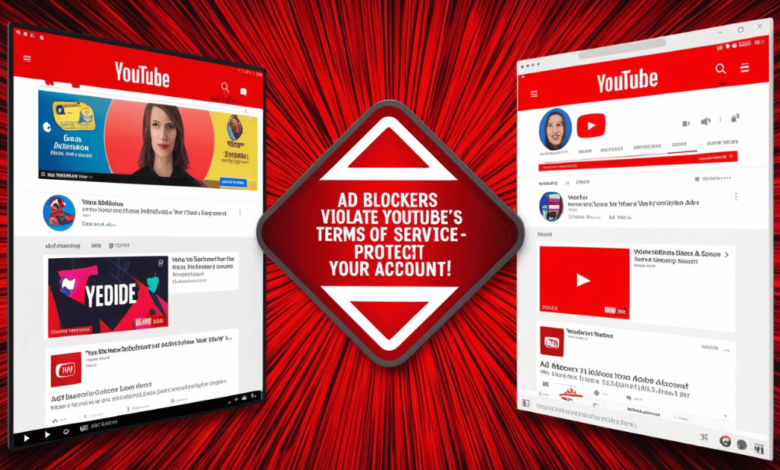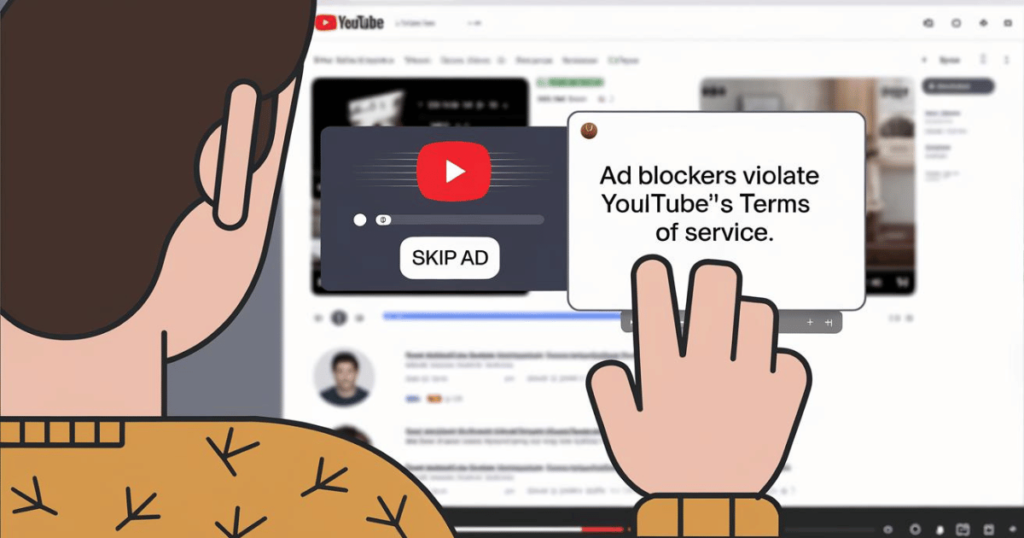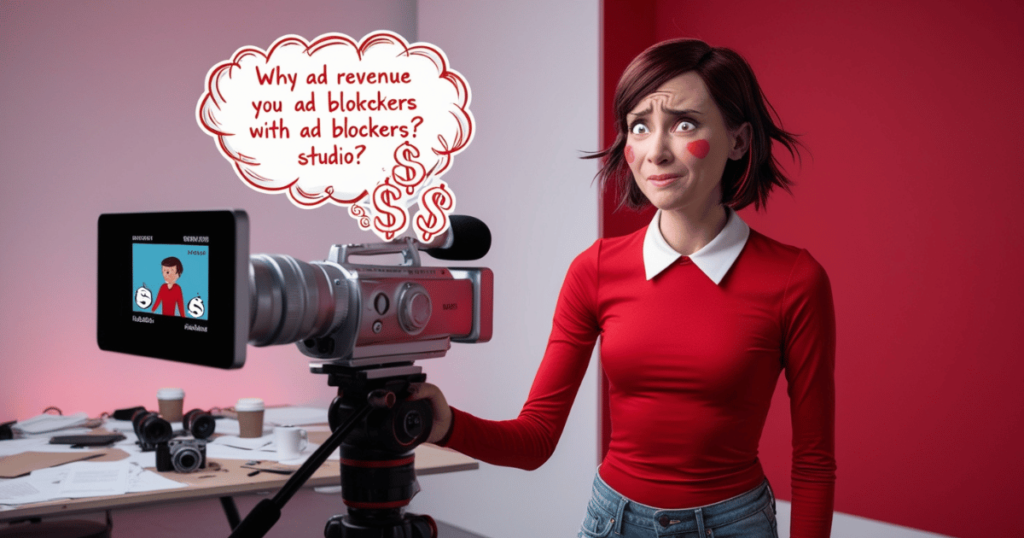
In recent years, ad blockers have become increasingly popular, especially on platforms like YouTube, where ads are prevalent. However, ad blockers violate YouTubes Terms of Service—a fact many users may not fully understand. This detailed guide explores how ad blockers impact YouTube, the potential consequences of violating the platform’s policies, and alternatives for users who want an ad-free experience without risking their account.
What Are YouTube’s Terms of Service?
YouTube’s Terms of Service (ToS) are a set of guidelines that users must agree to follow when using the platform. These rules ensure the protection of the platform, its creators, and its content. A significant portion of YouTube’s revenue comes from advertisements, and as a result, ad blockers violate YouTubes Terms of Service by depriving the platform and its creators of essential income.
Important Clauses Regarding Ad Blockers in YouTube’s ToS
- Ad Skipping and Blocking: According to YouTube’s ToS, users are prohibited from circumventing, skipping, or blocking ads served on videos.
- Consequences for Violations: Users who employ ad blockers could face penalties, including account suspension, loss of access to premium features, and potential termination of their accounts.
- Impact on Content Creators: By blocking ads, users prevent creators from earning ad revenue, which negatively affects their ability to produce content.
Why Ad Blockers Violate YouTubes Terms of Service
The primary reason ad blockers violate YouTubes Terms of Service is that they interfere with YouTube’s ad revenue model. Advertisements are essential for sustaining YouTube as a free platform and for providing income to content creators who rely on this revenue. By using ad blockers, users bypass the system that supports the platform’s financial structure.
The Role of Advertisements on YouTube
YouTube’s business model is heavily reliant on advertisements. Ads are displayed before, during, and after videos, providing revenue for both YouTube and its content creators. This system allows YouTube to remain free to users while still offering high-quality content. When users employ ad blockers, they are not only violating YouTube’s policies but also impacting the livelihoods of creators who depend on ad revenue.
How Ads Help Creators
- Revenue Sharing: YouTube shares ad revenue with creators, allowing them to earn money from their videos.
- Support for Free Content: Ads allow creators to provide free access to their content without paywalls.
- Encouragement for Quality: Creators are incentivized to produce high-quality videos that attract larger audiences and more ads.
Consequences of Violating YouTube’s Terms of Service
When users choose to use ad blockers, they are not just depriving YouTube of revenue—they are also risking penalties that can severely limit their access to the platform. YouTube’s enforcement of its Terms of Service is serious, and the consequences for violating these terms can be severe.
Potential Penalties for Using Ad Blockers
- Account Suspension: If YouTube detects that a user is consistently blocking ads, they may receive warnings. Continued violations can result in a temporary suspension of the account.
- Loss of Features: Users who violate the ad policy could lose access to features such as commenting, liking, and uploading videos.
- Account Termination: In extreme cases, repeated violations could lead to the permanent termination of the user’s YouTube or Google account.
- Legal Consequences: While rare, YouTube reserves the right to pursue legal action against users who repeatedly violate its ToS by using ad-blocking software.
Why Users Opt for Ad Blockers Despite the Risks
Even though ad blockers violate YouTubes Terms of Service, many users still choose to use them. Ads can be seen as intrusive, repetitive, and disruptive to the viewing experience. This has led to a significant rise in ad blocker adoption, especially among users who spend large amounts of time on YouTube.

Common Reasons for Using Ad Blockers:
- Avoiding Disruptions: Ads interrupt the flow of video content, leading users to seek out a smoother viewing experience.
- Reducing Data Usage: For users with limited data plans, ads can consume a significant portion of their bandwidth.
- Speeding Up Load Times: Videos often take longer to load when ads are included, so users opt for ad blockers to reduce lag time.
YouTube Premium: The Legal Alternative to Ad Blockers
Rather than risking penalties by using ad blockers, YouTube offers a legitimate alternative: YouTube Premium. This subscription service allows users to enjoy an ad-free experience while still supporting the platform and its content creators.
What YouTube Premium Offers:
- Ad-Free Viewing: Users can watch videos without interruptions from ads, providing a smooth and seamless experience.
- Support for Content Creators: A portion of YouTube Premium subscription fees goes directly to content creators, ensuring they are compensated for their work.
- Additional Features: Subscribers also gain access to perks like offline viewing, background play, and exclusive content on YouTube Music.
Benefits of YouTube Premium for Users:
- Ad-Free Experience: Avoid the frustration of ads without violating YouTube’s policies.
- Exclusive Features: Background play, offline downloads, and access to YouTube Music enhance the viewing experience.
- Content Support: By subscribing to YouTube Premium, users directly support the creators they love without breaking YouTube’s rules.
The Ethical Consideration: How Ad Blockers Hurt Content Creators
Beyond the direct violation of YouTube’s ToS, the use of ad blockers presents an ethical dilemma. Ads are a key source of income for creators, and when users block them, they are undermining the support system that allows creators to continue producing free content.

Impact on Creators’ Livelihoods:
- Reduced Revenue: With ad blockers, creators lose out on a significant portion of their earnings, which can discourage them from creating new content.
- Less Frequent Content: The reduced financial incentive can lead creators to upload fewer videos or shift to paid platforms where they can better monetize their work.
- Increased Reliance on Paywalls: As ad revenue declines, creators may start placing content behind paywalls or using other monetization strategies like memberships, reducing the accessibility of free content.
Alternatives to Using Ad Blockers on YouTube
There are several ways users can enjoy YouTube without ads, while still supporting the platform and its creators.
How to Support Creators Without Using Ad Blockers:
- Watch Ads: Simply allowing ads to play is one of the easiest ways to support creators. By doing so, you help generate revenue that allows them to continue producing high-quality content.
- Purchase Merchandise or Join Memberships: Many creators offer branded merchandise or memberships that provide additional support. These options allow fans to contribute directly to their favorite creators.
- Use YouTube Premium: Subscribing to YouTube Premium is the most effective way to avoid ads while still supporting creators. The revenue from subscriptions is shared between YouTube and content creators, ensuring that creators are fairly compensated for their work.
Future of YouTube and Ad Blockers
As ad blockers become more widespread, YouTube may continue to evolve its policies and enforcement strategies to protect its revenue model and content creators. This could include stricter penalties for ad-blocker users or more aggressive methods to ensure ads are served. Ultimately, YouTube is working to strike a balance between providing a positive user experience and maintaining the revenue streams that support the platform.
What the Future Holds:
- Stricter Enforcement: YouTube may increase the penalties for ad-blocker usage, including faster account suspensions or more comprehensive account monitoring.
- Improved Ad Experience: YouTube could work on improving the relevance and quality of ads to make them less intrusive and more enjoyable for users.
- New Monetization Methods: Creators might adopt alternative ways to monetize their content, such as crowdfunding, memberships, or partnerships with brands.
Conclusion
Ad blockers may offer a quick fix for avoiding ads on YouTube, but ad blockers violate YouTubes Terms of Service, potentially resulting in serious consequences. These tools not only hurt the platform but also the creators who rely on ad revenue to continue producing content. Instead of using ad blockers, consider alternative ways to enjoy an ad-free experience, such as subscribing to YouTube Premium, or simply allowing ads to play through. By doing so, you support a sustainable ecosystem where creators are rewarded for their hard work, and YouTube can continue offering free content to users worldwide.
FAQs”ad blockers violate youtubes terms of service”
- Why do ad blockers violate YouTubes Terms of Service?
Ad blockers violate YouTubes Terms of Service because they interfere with the platform’s ability to serve ads, which are essential for generating revenue that supports both the platform and content creators. - What happens if ad blockers violate YouTubes Terms of Service?
If ad blockers violate YouTube’s Terms of Service, users could face penalties ranging from account suspension to losing access to features, and in severe cases, account termination. - Are there any legal risks if ad blockers violate YouTubes Terms of Service?
Yes, in rare instances, YouTube may pursue legal action against users if ad blockers violate YouTube’s Terms of Service repeatedly and cause significant harm to the platform’s business model. - Can using ad blockers violate YouTubes Terms of Service permanently ban my account?
Yes, if ad blockers violate YouTubes Terms of Service multiple times, repeated violations may lead to a permanent ban or termination of your Google account. - How can I avoid penalties if ad blockers violate YouTubes Terms of Service?
To avoid penalties when ad blockers violate YouTubes Terms of Service, users should disable their ad blockers while on the platform or opt for YouTube Premium to enjoy an ad-free experience legally. - Do creators lose revenue if ad blockers violate YouTubes Terms of Service?
Yes, creators lose revenue when ad blockers violate YouTube’s Terms of Service because ads provide income to content creators, and blocking them directly impacts their earnings. - Is YouTube Premium a better option than using ad blockers that violate YouTubes Terms of Service?
Yes, YouTube Premium is a legal and ethical alternative for avoiding ads, ensuring that you don’t use ad blockers that violate YouTubes Terms of Service, while still supporting content creators.



